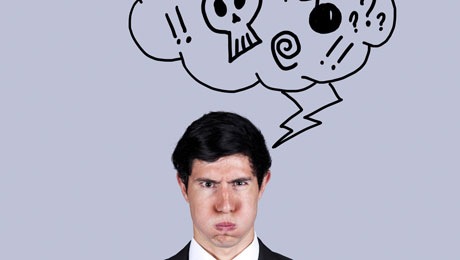
How to take better decisions?
Each day, we are called to take a number of decisions, sometimes less important and other times more crucial for the course of our lives. But what is that thing that leads us to the final decision? Is it instinct, logic, feeling or common good?
Because there shouldn’t be only one criterion for all your choices, let’s look into the secrets for unmistakable decisions!
Experts explain that generally all choices are based on various criteria. A bit of logic, a bit of instinct, a bit of feeling, a bit of habit…
The ideal however would be to learn to decide based on the criterion that is suitable per situation: for example in matters of the heart it is advised to trust our instinct, whereas for financial decisions our logic.
Find below the 4 basic criteria of making decisions. Understanding those can help you use in your advantage the science of decision making.
Deciding based on instinct
Quite often, we trust the “little voice inside our head”. And why shouldn’t we? Usually it is the product of the unconscious mental processing of many data.
As experts explain, if every decision should firstly be evaluated and analyzed by conscious, then our brain would have to be loaded with an excessive amount of work.
This way, some choices are being made automatically. Experience is the thing that tells us that if the customer standing in front of us at the super market checkout has an overloaded shopping cart, he will probably need more time until he pays compared with someone else who has a half filled cart.
There are times when it’s more important not to trust our instinct only. In situations of intense stress, it is possible to proceed to crucial decisions based on our feelings at that time.
In this case, experts suggest that we should first take some deep breaths and allow ourselves a break of about thirty minutes, so that we can see clearly the consequences of the choices we have.
Of course this doesn’t mean that our fears should stop us: almost always it proves best to regret for something we have done rather than something that we haven’t.
Deciding for the common good
Sometimes we tend to take decisions that have no benefits on a personal level, but contribute towards making the world better.
The idea that some decision might unintentionally have a bad impact on someone else makes us deeply dissatisfied. On the contrary, when we take decisions that are not in our favor, but we consider them right and fair, we are overwhelmed by a feeling of euphoria. This happens because they are based on rules written in the history of mankind.
The source of ethical choices is mutuality. As the experts state, the attitude “treat people the way you want to be treated” is not only a principle in the Bible, but it has a neurophysical basis, the so-called neurons-mirrors.
Deciding cold minded
One plus one equals two, but two are not always better than one: taking decisions based on logic can have great benefits, but it leaves no space for intuition.
On a theoretical level, logic seems to be the best advisor. It allows us to examine calmly the pros and cons of our choices, to erase our doubts and to get ready for the consequences of our decisions.
In reality though, the mind does not function completely free of emotional limitations and therefore it is almost impossible to remove the rest of the factors that affect our judgment.
In some cases, it is important to evaluate the pros and cons of a decision we are about to take. What’s the most common system? Write down on a piece of paper the advantages and disadvantages of our various choices, rating each element, and in the end to decide based on the total rating.
Deciding based on emotion
The way we are presented things can influence our choices: however they are traps that we need to learn how to spot and bypass them.
It is called “framing”, and it is the trap we usually fall in by making the choice that under different circumstances we would have rejected. The public opinion poll specialists use it frequently, by wording the questions in such a way so that they get the answers they want.
An example: If we have to choose between two same detergents, but we are said that the first removes 80% of the stains and the second doesn’t fight 20% of the dirt, which one would we choose? Probably the first, because our reaction to the way a situation is presented to us, leads us to emotional traps.
